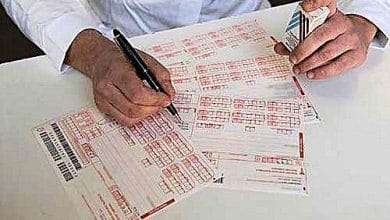
INPS: Illness arising during the holidays suspends its course unless the employer proves that the same is concretely compatible with the purposes of the holidays. The suspensive effect in question is produced, for social security purposes, from the date on which the employer received the communication of the state of illness from the employee, without prejudice to the indemnification of only the days documented in the manner and within the terms of the law . (INPS Circular n. 109 of 17 May 1999)
The suspensive effect of holidays for the onset of illness is not absolute, but applicable when the incompatibility of the illness with the function of rest, recovery of psycho-physical energy and recreation proper to the institution of holidays is ascertained.
 From the moment the rest period is interrupted due to illness, the worker must fulfill the obligations envisaged during suspension from work due to illness:
From the moment the rest period is interrupted due to illness, the worker must fulfill the obligations envisaged during suspension from work due to illness:
– undergo a medical examination,
– request the drafting and sending of the illness certificate
– check the correct compilation of the personal data included in the certificate, indicate the address of availability if it is different from the habitual residence,
– provide useful indications for availability if the home is difficult to reach,
– check that your name is clearly visible on the push-button panel of the intercoms and on mailboxes,
– be at home in specific availability slots.
According to the indications of the Cassation, the employer who intends to prove the non-existence of the disease or its irrelevance to interrupt the holiday period, must request a medical check-up for his employee, specifying at the time of the request the conversion of the absence from work for holidays or absence due to illness. If the verification requested by the employer cannot take place for reasons attributable to the worker, the possibility of considering the reported illness as an interruption of the rest period is precluded.
During the home inspection medical visit, the tax doctor must evaluate the degree of impairment of the functions that allow the individual to enjoy the holidays, comparing it to the so-called biological damage.
 The evaluation must evaluate the possibility of carrying out those recreational and rest activities which are the basis of the institution of holidays, but which do not necessarily have to derive from the evaluation of the specific work incapacity. Hence the need to separate the two assessments, bearing in mind that the institution of holidays as such, being aimed at psychophysical recovery, rest function, recreational activity, in fact disregards the sole recognition of the inability to carry out one's work specific.
The evaluation must evaluate the possibility of carrying out those recreational and rest activities which are the basis of the institution of holidays, but which do not necessarily have to derive from the evaluation of the specific work incapacity. Hence the need to separate the two assessments, bearing in mind that the institution of holidays as such, being aimed at psychophysical recovery, rest function, recreational activity, in fact disregards the sole recognition of the inability to carry out one's work specific.
The judgment on the suitability or otherwise of the illness to interrupt the holidays will be presented by the doctor on the report
In the case of illness arising abroad, the medical certificate is valid if it concerns countries belonging to the European Union. If the disease has occurred in countries that are not part of the European Community, or in countries that have not entered into specific conventions and agreements with Italy that regulate the matter, the health certification must be legalized and translated into Italian by the local diplomatic mission or Italian consular office operating abroad. An employee who falls ill and is abroad must also communicate the illness to the relevant Office, send a copy of the certification and communicate the temporary address.
The worker on holiday in an EU country must present the sickness certificate to INPS and to the employer, within 2 days of issue. Otherwise, you can apply directly to the competent local authority which will immediately proceed with the medical assessment of the incapacity for work and the compilation of the certificate to be sent immediately to the competent institution.
During stays abroad in countries that are not part of the European Community or in countries that have not stipulated specific conventions and agreements with Italy that regulate the matter, the payment of sickness benefits can only take place after presentation to INPS of the original certification, legalized by the Italian diplomatic or consular representation operating in the foreign territory.
As regards the medical certification to be presented to INPS in the event of temporary incapacity for work, EU citizens they do not have the obligation to send it in Italian, but they can present it, always within the due deadlines, in the original language, as the translation of the certification legitimately obtained in their respective countries is not required by them.





